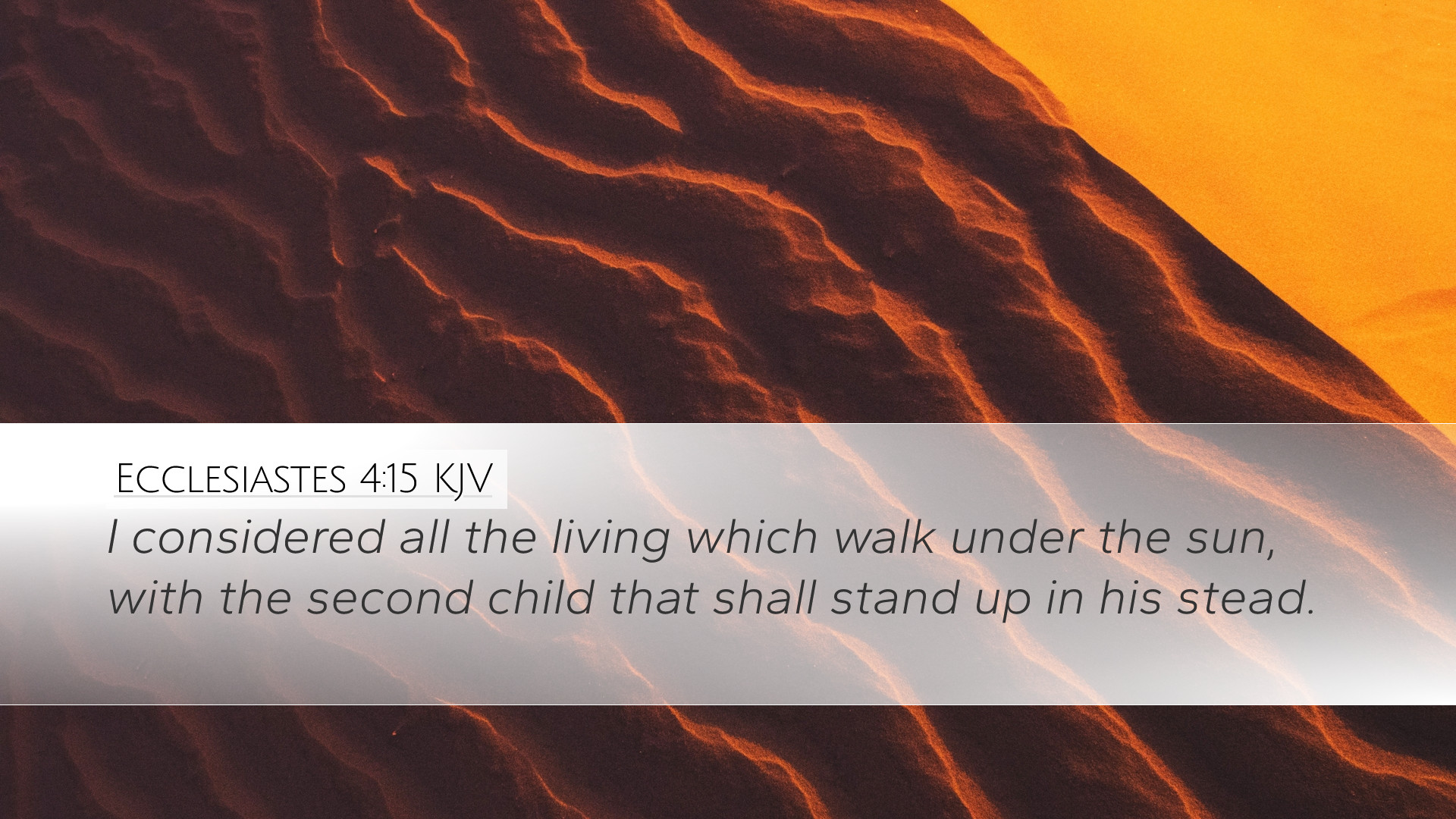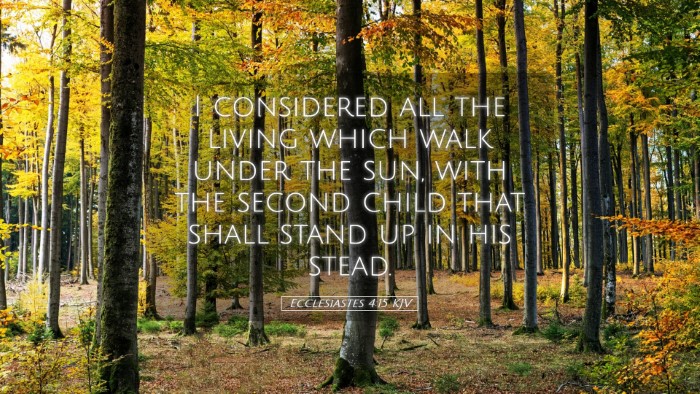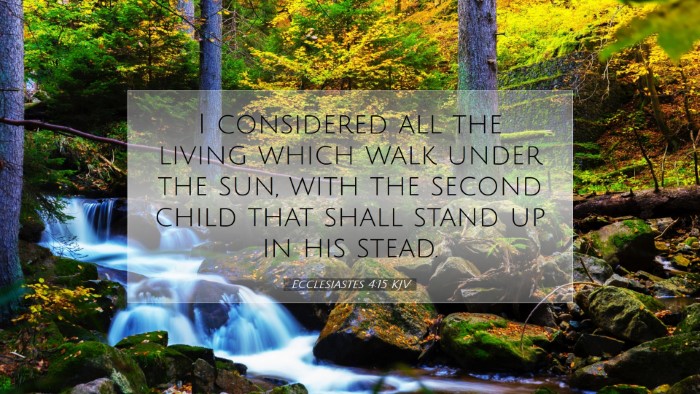Old Testament
Genesis Exodus Leviticus Numbers Deuteronomy Joshua Judges Ruth 1 Samuel 2 Samuel 1 Kings 2 Kings 1 Chronicles 2 Chronicles Ezra Nehemiah Esther Job Psalms Proverbs Ecclesiastes Song of Solomon Isaiah Jeremiah Lamentations Ezekiel Daniel Hosea Joel Amos Obadiah Jonah Micah Nahum Habakkuk Zephaniah Haggai Zechariah MalachiEcclesiastes 4:15
Ecclesiastes 4:15 KJV
I considered all the living which walk under the sun, with the second child that shall stand up in his stead.
Ecclesiastes 4:15 Bible Commentary
Commentary on Ecclesiastes 4:15
Ecclesiastes 4:15 states: "I considered all the living which walk under the sun, with the second child that shall stand up in his stead." This verse reflects on the nature of succession among people, particularly those in positions of power and influence. Below, we present a synthesis of insights from notable public domain commentators, providing a meaningful exploration of this text for pastors, students, theologians, and Bible scholars.
Contextual Overview
The book of Ecclesiastes is traditionally attributed to King Solomon and offers a profound reflection on the meaning of life, the human condition, and the inevitability of death. It addresses the vanity of worldly pursuits and emphasizes the transient nature of earthly endeavors.
Verse Breakdown
In Ecclesiastes 4:15, the imagery of "the living which walk under the sun" signifies all humanity. The reference to the "second child" denotes the continuous cycle of succession in life, where one generation gives way to the next. This highlights a central theme of the book: the impermanence of human existence.
Commentary Insights
Matthew Henry's Commentary
Matthew Henry reflects on the inevitability of succession, noting that all people are ultimately replaceable. He suggests that while death is an inescapable reality, the focus should not solely be on the loss but also on the legacy we leave behind. The verse serves as a reminder of the importance of influencing future generations positively.
Albert Barnes' Notes on the Bible
Albert Barnes emphasizes that the phrase "the second child" serves as a metaphor for the new life that continues after the old. He underscores the cyclical nature of existence, illustrating that just as one leader or individual passes away, others rise to take their place. Barnes posits that this principle encourages a sober reflection on our own lives and how we invest our time and efforts.
Adam Clarke's Commentary
Adam Clarke deepens the analysis by suggesting that this verse addresses not just succession in a political sense but also in familial and spiritual contexts. He explains that the second child symbolizes hope and continuation of lineage and ideals, compelling believers to consider what they impart to the generations that follow them. Clarke invites readers to ponder their own legacies in both the familial and spiritual dimensions.
Theological Implications
This verse raises crucial questions about the significance of our actions and attitudes towards the teachings we pass on. Key theological implications include:
- Understanding Our Legacy: How do our choices reflect the values we wish to instill in future generations?
- Recognition of Human Transience: The verse continues Solomon's thought on the ephemeral nature of life, prompting a sense of urgency in living a meaningful life.
- Value of Mentorship: The role of mentors becomes critical, as they guide the second generation in a path illuminated by wisdom and experiences.
Practical Applications
For pastors and teachers, the practical implications of Ecclesiastes 4:15 are significant:
- Encouraging Disciple-Making: Leaders in faith communities should prioritize raising up spiritually mature individuals who can carry the torch for future generations.
- Wisdom in Leadership: Reflect upon what values and lessons you wish to pass along in your ministry.
- Intergenerational Relationships: Foster connections between different age groups in the community, ensuring rich exchanges of knowledge and support.
Conclusion
Ecclesiastes 4:15 serves as a poignant reminder of the cycles of life and the importance of our contributions to the future. By synthesizing insights from Matthew Henry, Albert Barnes, and Adam Clarke, we gain a multifaceted understanding of this text. It calls for introspection regarding how we live, influence, and prepare for the inevitable generational transitions we all face. Engaging with this verse can inspire richer dialogues about legacy, responsibility, and the hope we instill in the lives of those who follow us.


